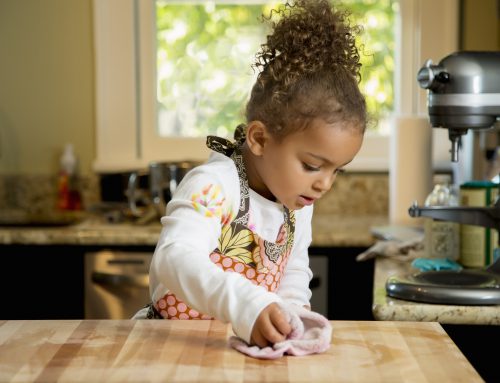Author :
Category :
Dealing with Sibling Rivalry

Two or more children often first experience the world of “I’m not the only one in the world?” through a sibling. Children often vie for parents’ love and attention, so to help ease the realization that others count, too:
First and foremost, do not play favorites
consciously pay attention to each child;
spend separate, quality time with each child;
protect each child equally and don’t always “rescue” a younger child from an older sibling (so don’t let the younger child take the older child’s toys); and
lose the labels – the smart one, the easy one, the athletic one or the wild child – focus on positive attributes, such teamwork or kindness, so siblings can begin to help each other instead of competing for their parents’ approval.
Give each child a toy or possession that they don’t have to share;
listen and celebrate each child’s differences: let each know they are special in their own way;
do not dismiss or suppress your children’s resentment or angry feelings;
whenever possible, let siblings settle their own differences.

All family members need to work together: parents and children and any others who live in the home and have a stake in decisions affecting the daily life of the family should take part. To make your family meetings successful, establish some general rules, for example:
- Everyone gets a chance to talk
- One person talks at a time and does not get interrupted
- Okay to say what you feel
- No one has to talk
- Everyone has to listen
- No one puts anyone else down
Develop a plan for evenly distributing coveted privileges.
- Who gets to ride “shotgun” in the car? (It’s amazing how many teenagers and young adult siblings still make this an important issue.)
- Who gets to push the button in the elevator?
- Who gets to choose where to go to eat lunch or dinner?
- Who gets to choose the television show?
- Who does what chores (age appropriate) weekly or monthly? Etc.
More importantly, sibling rivalry is an ever-evolving process. Being proactive with some of these parenting techniques can give your children resources that will serve them later in life.
Related links: Gratitude Giving Thanks
Share This Article!
activity (13)
apps (3)
arts & crafts (5)
babysitter (4)
birthday (3)
childcare (7)
christmas (13)
dessert (4)
disneyland (2)
donuts (1)
easter (14)
emoji day (1)
etiquette (1)
fall (1)
family (44)
fathers (1)
fathers day (1)
fathers day gifts (1)
first of summer (1)
gear (3)
halloween (10)
hanukkah (1)
health (4)
holidays (9)
july 4 (5)
kid's yoga (1)
kids activities (2)
kids day (2)
kids sports (1)
new years (4)
Olympics (1)
parent (38)
recipe (52)
snacks (1)
sports (1)
spring (4)
summer (9)
summer solstice (1)
sun (1)
thanksgiving (6)
treats (1)
valentines day (7)
wedding (4)
winter (5)
yoga (1)








